Amino Acids
Amino acids are vital for all living beings to build proteins. Amino acids and proteins are the building blocks of life.
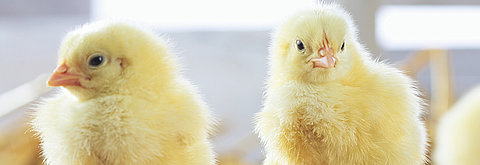
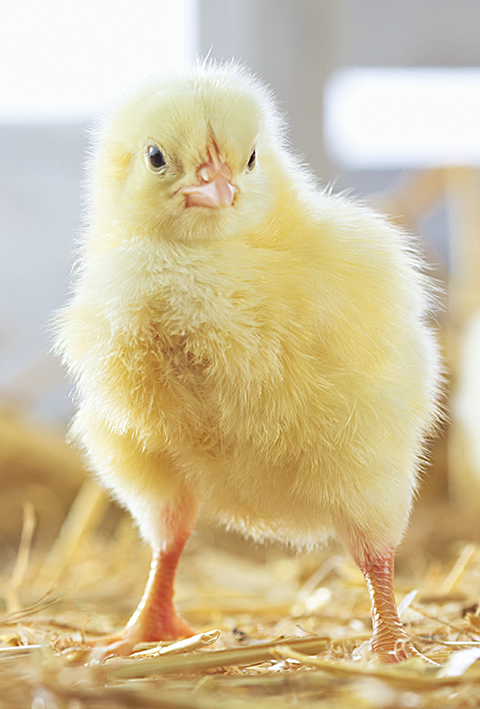

Poultry meat does not underlie religious barriers and has the best environmental footprint among animal products1. Accordingly, recent FAO forecasts predict the poultry sector to grow the most in the coming decade2. Poultry have very different feeding requirements depending on the purpose for which they are raised.
Modern feed additives ensure that the high performance potential of the animals is used in an economically profitable and sustainable way, and that consumer demands regarding product quality are met. Modern housing systems allow the option of supplementing additives via drinking water in addition to traditional supplementation via feed.
In 1957 the average weight of a broiler was 905 g after 56 days. By 2007, it had reached 3,830 g after the same fattening period.
The number of eggs per hen and year has increased from 120 around a century ago, to 327 today.
Due to the large number of birds per house, monitoring or treatment of individual animals is difficult or even impossible. In addition, housing in large flocks can also bring about further challenges, such as high infection pressure or abnormal behaviour.
For this reason, feeding or treatment must be adapted to reach all animals. The increasing incidence of Avian Influenza with rising pressure on improving animal welfare and the need to reduce antibiotics give rise to further challenges for the feed industry and the farmer.
In this challenging environment, Kaesler Nutrition has developed a comprehensive and scientifically proven product portfolio, which includes products for application via feed as well as via drinking water.
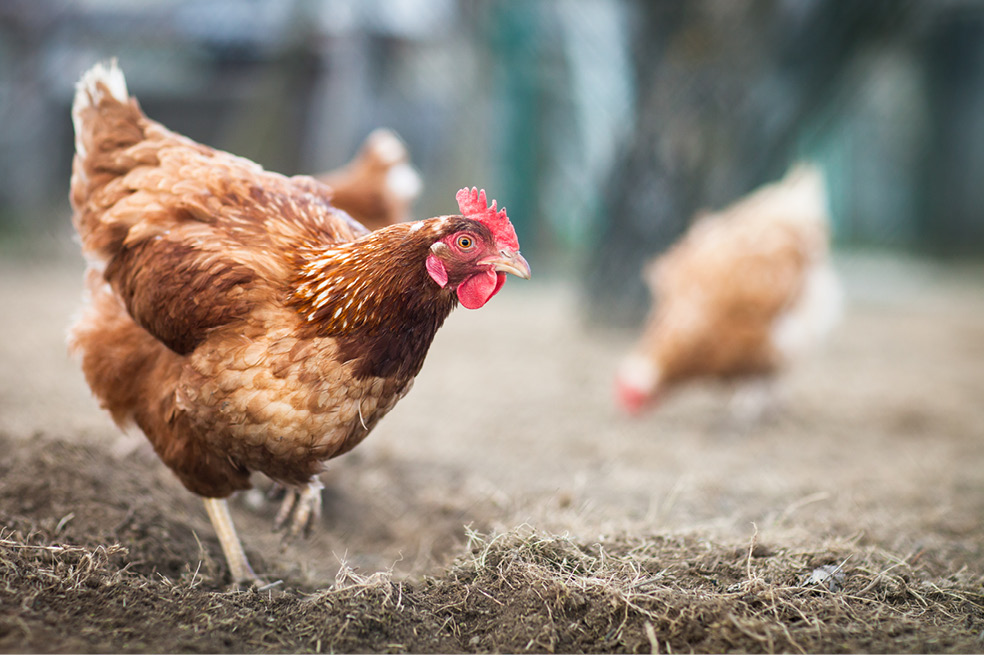

For further information or if you need help in finding the right product or solution, please contact us.
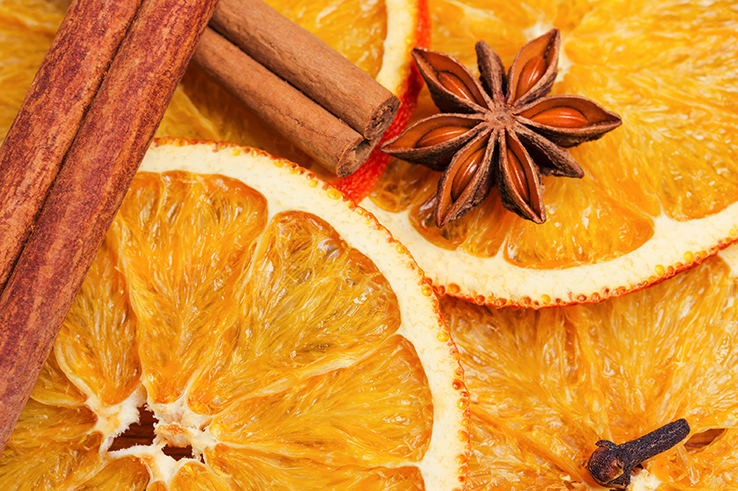
To neutralise the negative consequences of heat stress, antioxidants and electrolytes can be supplemented. The effect of a drinking water application on broiler performance and vitality was tested in this trial.
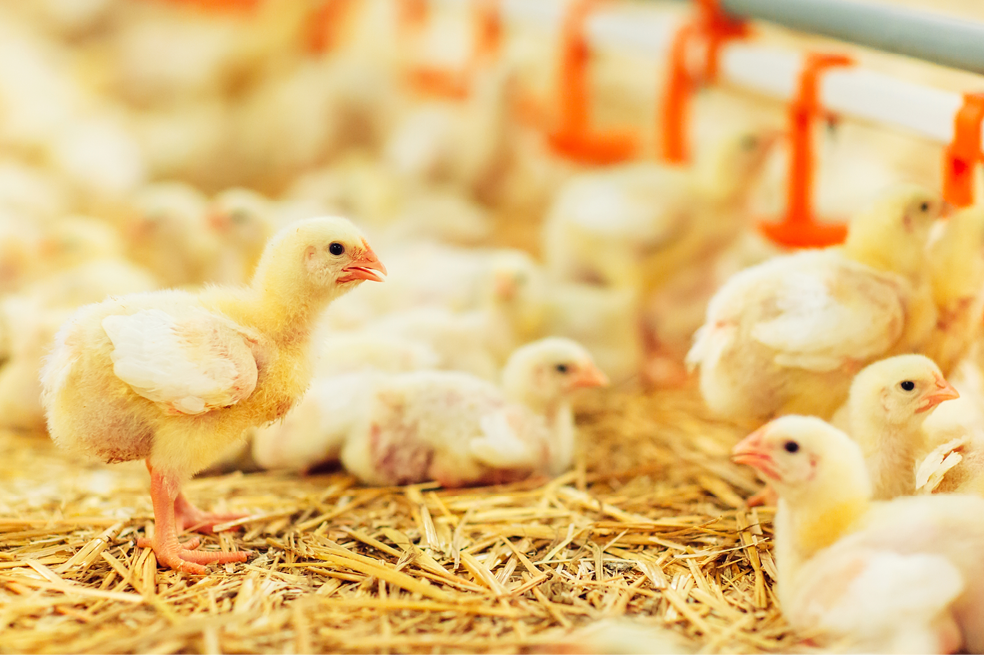
High temperatures often reduce performance of poultry production. In this trial, the effect of Lovit Cool on the performance and well-being of laying hens was tested.
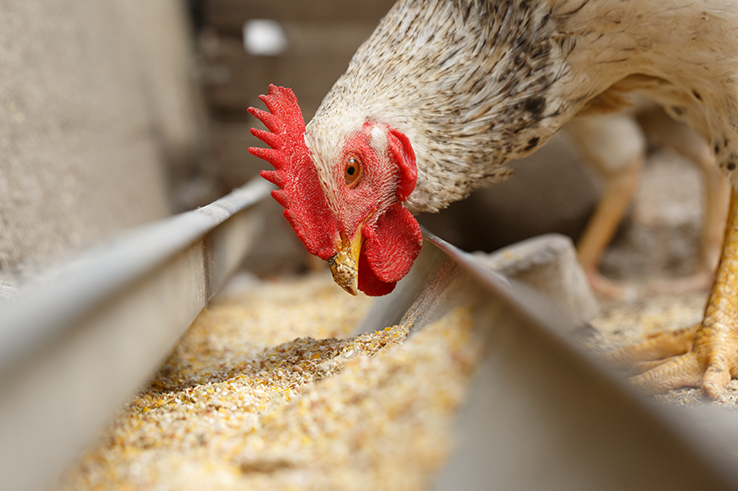
To support laying hens during phases of cannibalism and feather pecking, a field trial was conducted with Lovit Granule Calm.
1Ritchie, H., Rosado, P. and Roser, M. (2022). Environmental Impacts of Food Production. Published online at OurWorldInData.org. Retrieved from: https://ourworldindata.org/environmental-impacts-of-food
2OECD/FAO (2023), OECD-FAO Agricultural Outlook 2023-2032, OECD Publishing, Paris, https://doi.org/10.1787/08801ab7-en.
